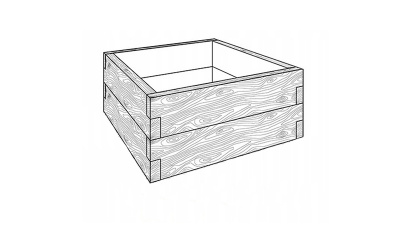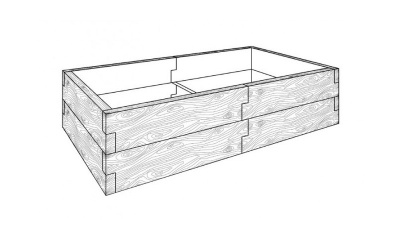What is compost?
Compost is a natural fertilizer made primarily of plant waste. Compost is the best addition to our plants, it improves the structure, water absorption and fertility of any soil, and provides plants with all the nutrients. It is often used in ecological gardening for mulching, i.e. mulching the soil and thus its fertilization.
What to put in the composter?
- Fallen leaves
- Egg shells
- Coffee grounds
- Leftover fruit and vegetables
- Fresh weeds without seeds
- Fine branches
- Scobs
- Cardboards, shredded paper without colored prints
- Nut shells
- Mown grass
- Wood ash
- Potted soil
What not to compost?
- Meat, fish
- Sick, infested plants
- Dairy
- Citrus peel
- Cooked food
- Colorful magazines
- Animal excrements
- Water with detergents
- Plastic
- Coal furnace ash
Compost formation stages:
I – dying off and decay of tissues, this stage lasts up to a week, occurs at a temperature of 20-30 degrees.
II – mineralization – at this stage, the main role is played by microorganisms that feed on the chemical compounds contained in the waste, they also consume oxygen, thanks to which the temperature of the heap increases to 70 degrees, seeds and pathogens are eliminated and decomposition is accelerated. This stage takes approximately 20-40 days.
Oxygen is very important in the decomposition process, so compost should be turned over at least every two months.
III – the compost maturation stage, which usually takes several months, takes place at ambient temperature.
The finished compost is black and powdery, it should not get your hands dirty, it should be slightly damp, and the smell should resemble forest litter.
Earthworms in a composter
Earthworms are useful animals, they loosen, aerate the soil and mix minerals. The droppings of these creatures contain large amounts of nutrients, thanks to which vermicompost is produced, which affects the quality of the compost. In addition, earthworms accelerate the composting process, so to make them appear in it, it is worth building an open-bottomed composter.
Why is it better to make homemade compost and enrich the soil with it than to buy ready-made soil in bags?
It happens that the land purchased in the store will not have a good composition. Most often, peat is added to it, which has a small amount of nutrients and is extracted from marsh places where protected plants grow and thus is damaged. Destruction of peatlands has a negative impact on our environment.
Use concrete crates as a permanent composter
A concrete composter is a durable garden solution, resistant to frost and high temperatures. The wood imitation makes the composter look good. The construction of concrete modules makes it possible to obtain the appropriate height and length of the composter, with the possibility of further expansion if necessary. The most popular composter models are 128x128x58 cm or 128x250x58 cm and are available at www.warzywniki.pl
- Composter 128x128x58 cm
- Composter 128x250x58 cm



